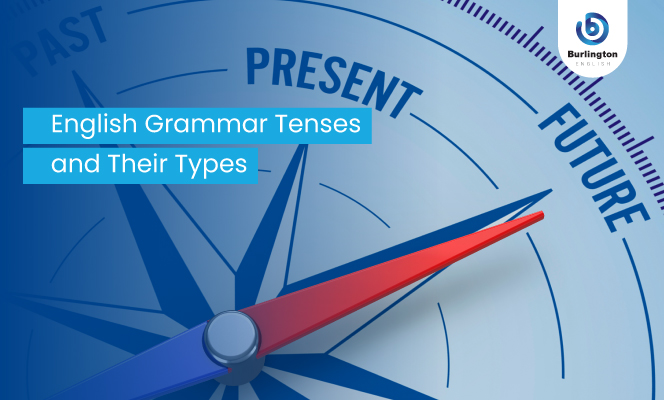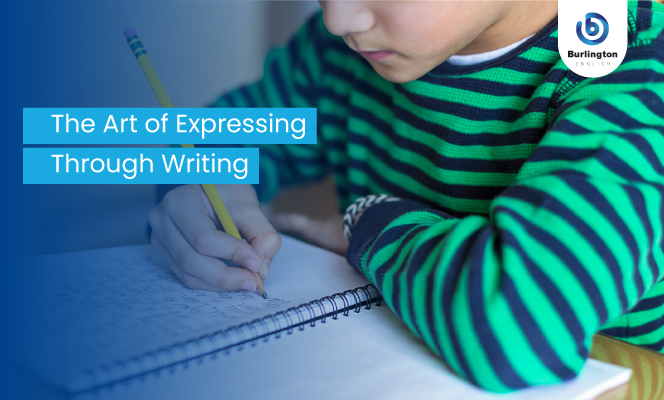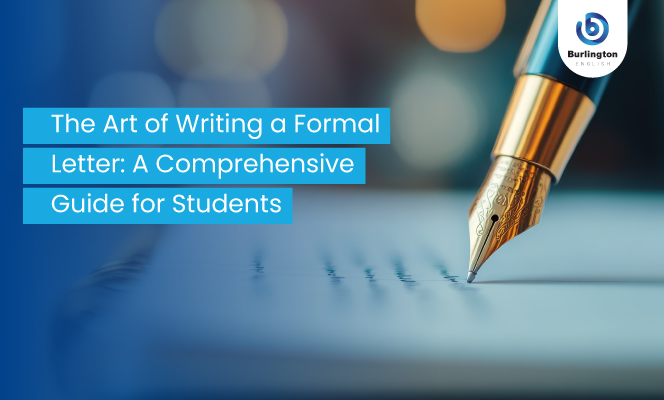A tense is a form of the verb that allows you to express time or the duration of any event. The tense of the verb tells us when an event existed or happened. Past, present, and future are the three types of tenses.
Let’s learn about English grammar tenses and their types!
Present Tense – It describes what is happening in the present time.
Examples:
- I am writing a letter.
- We go to school.
- They sing a song.
Past Tense- It talks about past activities.
Example:
- I went to the market.
- I wrote a letter.
- They did not find a solution.
Future Tense- It communicates future activities.
Examples:
- I will go to America next month.
- She will be coming tomorrow.
- The office will remain closed for the next two days.
Before we begin, let us understand what a verb is.
Verbs- Any word that describes an action is called a verb. Verbs are of two kinds:
- Helping Verbs– Helping verbs connect the Subject, Action and Object in any sentence. These are different for Present, Past and Future Tenses.
Examples: Present Tense – is, am, are, do, does, has, have
Past Tense- was, were, had, did, used to
Future Tense- will, shall
- Main Action Verbs– Main action verbs describe the main activity or the action of the subject. These have three forms in grammar.
Example
|
Present |
Past | Past Participle |
| Go | Went |
Gone |
| Come | Came |
Come |
Present Tense
The present tense represents the time of any action in different forms in the present. They are as follows-
Simple Present/ Present Indefinite– This form indicates habitual actions, general truths, and fixed events in the future.
Examples:
- Rahul stays in a hostel.
- The sun rises in the East.
- Students work hard to get success in life.
- I get up at 6 AM daily and start my day.
- I usually go for shopping every Sunday.
Present Continuous– It indicates an action going on at the time of speaking or represents an action which is going on at present but not necessarily at the time of speaking.
Examples:
- The traffic is moving outside.
- The fan is moving and cooling the room.
- I am writing a book on nature.
Present Perfect– It indicates completed activities in the immediate past or expresses past actions whose time is not given and not definite.
Examples:
- Rahul has arrived at the mess.
- I have just finished my work.
- They have shifted to a new place.
Present Perfect Continuous– This is used to indicate an action that started sometime in the past but is continuing.
Examples:
- It has been raining since last night.
- I have been waiting for you for the past three hours.
- He has been working here since 2000.
Past Tense
Past tense is used to indicate the time which has already passed.
Simple Past/ Past Indefinite- It indicates past incidents and past habits.
Examples:
- Rahul came to Delhi 4 years ago.
- I bought a car last month.
- I went to meet the new secretary yesterday.
Past Continuous– It indicates an action that occurred at some point in the past. When used with ‘continually’ and ‘always,’ it also represents persistent habits in the past.
Examples:
- Rahul was trying his best to avoid Amol when he disturbed him in yesterday’s class.
- I came across a monkey when I was crossing the road.
- She was preparing lunch when I went into the kitchen to see her.
Past Perfect– It indicates an action completed before another action (two events that happened together) in the past or an action before a specific moment.
Examples:
- Last night, before going to bed, he had planned the agenda for the entire day today.
- The train had already left before I reached the station.
- She had left the town before the disease spread.
Past Perfect Continuous—It indicates an action that occurred before a certain point in the past and continued up to that point.
Examples:
- Before moving to Delhi, he had been staying in Allahabad.
- I had been doing my work for the past two days before taking on the new project.
Future Tense
Future tense is used to indicate the time in which the actions will take place.
Simple Future/ Future Indefinite– It indicates events beyond our control or events that are planned in the future.
Examples:
- Mohit will turn 22 on Sunday.
- I will submit the project tomorrow.
Future Continuous– It denotes actions that will be in progress in the future or actions that are planned for the future.
Examples:
- Manoj will be going to America next month.
- I will be visiting my grandmother this weekend.
Future Perfect – It describes an action that will be completed in a certain future time and shows the probability of any action that is supposed to be finished in the future.
Examples:
- By the time you arrive at my place, I will have already left.
- She would have finished her draft by this time next week.
Future Perfect Continuous: It denotes an action that will be in progress over a period of time in the future.
Examples:
- By 6 o’clock, Rahul will have been studying for over 10 hours.
- By 2025, I will have been living in Delhi for 10 years.
Rules for Tenses
Specific rules for tenses must be followed. Here is a simplified version of the rules to make learning easier.
Simple Present Tense
- With singular- verb + (s)
- With plural- verb only
Subject + do/does + V1 (1st form of main verb) + object
Do– I, We, They, You, All, Others
Does– It, He, She
Examples:
- She knows how to write a letter.
- I do not know how to use this machine.
Present Continuous Tense
Subject + is/am/are + V1 (1st form of main verb) + ing + object
Is– He, She, It,
Am– I
Are– He, She, They, We, Others
Examples:
- Deepak is reading a book.
- They are singing a song in the choir.
Present Perfect Tense
Subject + has/have + V3 (3rd form of the main verb) + object
Has- He, She, It
Have- I, We, You, They, All, Others
Examples:
- They have finished their work.
- I have just returned from my office and am very tired.
Present Perfect Continuous Tense
Subject + has/ have been + V1 (1st form of the main verb) + for/since + object
For– Countable units of time like 2 hours, 2 min., 2 sec, 2 years, 2 days, 2 weeks etc.
Since– Uncountable Specific units of time like 2 PM, 2 AM, 1975, Tuesday, January, 2 o’clock, etc.
Examples:
- They have been studying for the past 4 hours.
- Indians have been struggling since 1947.
Simple Past Tense
Subject + V2 (2nd form of the main verb with no helping verb) + object
With all the subjects
Examples:
- I met a famous man.
- She went to the market yesterday.
Past Continuous Tense
Subject + was/were + V1 (1st form of the main verb) + ing + object
Was– He, She, It, I
Were– They, All, Others, We, You
Examples:
- They were discussing the test in class yesterday.
- He was not willing to go to the party.
Past Perfect Tense
Subject + had + V3 (3rd form of the main verb) + object
With all the subjects
Examples:
- I had finished my work before you came into my room.
- The train had already left before we reached the station.
Past Perfect Continuous Tense
Subject + had been + V1 (1st form of the main verb) + ing + for + object
With all the subjects
Examples:
- I had been working for the past 3 years before joining this company.
- Before shifting to this place, I had been staying in Mumbai.
Simple Future Tense
Subject + will + V1 (1st form of the main verb) + object
With all the subjects
Examples:
- I will go to America next month to pursue higher education.
- We will go to Switzerland for our summer vacation this time.
Future Continuous Tense
Subject + will be + V1 (1st form of the main verb) +ing + object
With all the subjects
Examples:
- When I go to America next month, I will be staying there for 2 months.
- I will be finishing my work soon.
Future Perfect Tense
Subject + will have + V3 (3rd form of the main verb) + by/till + object
With all the subjects
Till– Used for specific units of time
By– Used for a unit of time that has been rounded off
Examples:
- He will have stayed at the office till midnight to finish the report.
- I will have cooked dinner by the time you get home.
Future Perfect Continuous Tense
Subject + will have been + V1 (1st form of the main verb) + ing + for + object
With all the subjects
Examples:
- He will have been working at the company for five years by next month.
- By the end of this month, they will have been building the new bridge for two years.
We hope the blog has been informative and has helped you familiarise yourself with not only the definitions of the various tenses but also their usage and simplified rules to be kept in mind while using them.
Check out our other blogs on English grammar.
Stay tuned with us for more English grammar tenses content!







